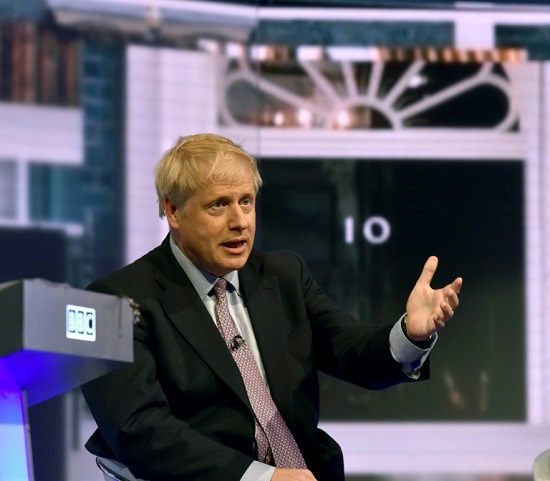This post has already been read 2052 times!
British Prime Minister Boris Johnson on Friday faced questions about his leadership after weeks of controversy culminated in a crushing by-election defeat in a constituency never previously lost by his Conservative Party.
His ruling Tories had held the seat in North Shropshire, central England, by a massive majority just two years ago, but saw that wiped out Thursday by the Liberal Democrats in a historic loss set to intensify the mutinous mood among Conservative MPs.
“I take personal responsibility,” Johnson said Friday in a clip for television news, calling the vote “very disappointing”.
“In all humility, I’ve got to accept that that verdict,” he added, insisting he understood “people’s frustrations” and “what the voters are saying in North Shropshire”.
The 57-year-old was already reeling from a series of scandals and setbacks, including around 100 of his lawmakers rebelling in parliament Tuesday against the government’s introduction of vaccine passes for large events.
His authority has also been hit repeatedly in recent weeks by claims of corruption and reports that he and his staff broke coronavirus restrictions last Christmas, while a new surge in Omicron cases have added to his woes.
The government reported nearly 89,000 new infections Thursday, the second consecutive record daily tally.
– ‘Kicking’ –
The Tories lost the safe rural seat, where they had a 23,000-strong majority since 2019, by almost 6,000 votes as the Lib Dems enjoyed a swing of 34 percentage points.
“The people of North Shropshire have spoken on behalf of the British people,” winning candidate Helen Morgan said in her victory speech.
“They have said loudly and clearly: ‘Boris Johnson, the party is over’.
“Your government, run on lies and bluster, will be held accountable… it will be challenged and it can and will be defeated.”
The shattering defeat drew an immediate backlash from some Tory MPs and predictions that letters of no-confidence in their leader could be dispatched to trigger an internal party vote to remove him.
The same process saw his predecessor Theresa May ousted in mid-2019 after MPs, including Johnson, voted against her Brexit deal in parliament.
“The Conservative Party has a reputation for not taking prisoners. If the prime minister fails, the prime minister goes,” long-serving lawmaker Roger Gale told BBC Radio.
“Johnson has to prove that he’s capable of being a good prime minister and at the moment it’s quite clear that the public don’t think that that’s the case.”
– ‘Electoral asset’ –
However, others cautioned that surging Covid infections could buy the prime minister time to turn around his fortunes.
“It doesn’t mean the end, and it certainly doesn’t mean leadership challenges,” said Charles Walker, the vice-chairman of the party’s 1922 Committee, which collates no-confidence letters and manages any leadership contest.
“The Conservative Party is not going to have a leadership challenge as we are heading into potential further restrictions around Covid.”
Party chairman Oliver Dowden, also a government minister without a portfolio, said North Shropshire’s voters were “fed up and they gave us a kicking” but that “we’ve heard that loud and clear”.
“The prime minister is an electoral asset for the Conservative Party,” he insisted to Sky News.
“On the big calls, (he) has the vision and the direction to get us through this difficult period.”
– ‘Voted tactically’ –
Johnson — who won voters’ overwhelming backing in 2019 on his promise to “Get Brexit Done” — has been dogged by controversies for weeks.
It began with his unsuccessful attempt to change parliament’s disciplinary rules to spare North Shropshire former MP Owen Paterson a suspension after he was found to have breached lobbying rules.
Paterson, who had held the seat since 1997, then quit, forcing Thursday’s vote.
That crisis, though, was soon eclipsed by reports that Johnson and his staff broke Covid rules last year by holding several parties around Christmas — just as the public were told to cancel their festive plans.
AFP/Punch



